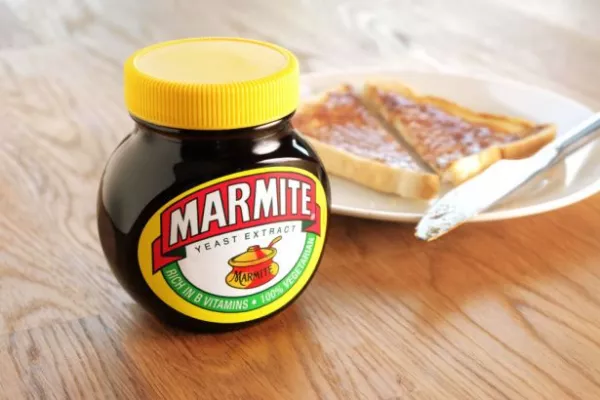Overnight, the U.K. awoke to fears of a nationwide Marmite shortage. Tesco, the country’s largest supermarket, had stopped online sales of Marmite—an iconic topping commonly spread on toast—in a dispute over price increases.
To non-Brits it’s hard to explain the tremor that ripped across the land. But imagine it’s July 3rd in America and Heinz ketchup just got pulled from Walmart.com.
The dispute between a supermarket and manufacturer that shot to the top Trending on Twitter mattered because, for the first time, the Brexit fallout was tangible.
For months, Brits have been arguing about the effects of the country’s break from the EU. The pound dropped 18%, sure, but was that really a bad thing? The pro-Brexit camp argued the currency plunge would be great for British exporters. Opponents warned of coming inflation. Both sides accused the other of scaremongering, before and after the vote.
In the background, examples of creeping Brexit impacts came and went. Apple raised the iPhone 7 price 11% in Britain from the iPhone 6, while holding the line in the U.S. Dell and Peugeot also raised prices.
But it took a fight between two of the world’s biggest consumer companies over a uniquely British product to show Brexit will have real-world impacts.
What is Marmite?
It’s a dark brown spread used on bread and crackers like a jam, but thick and pungent. The British product—a concentrated yeast extract left over from the brewing process—was created in the 19th century and bought by the Anglo-Dutch packaged-goods giant Unilever in 2000. The name is a French word for cooking pot. And like Brexit, people either love it or hate it, a characteristic that lies at the heart of the company's marketing.
Why did it disappear?
Well, it didn’t. But Tesco stopped selling it online, along with a host of other products including Ben & Jerry's ice cream, after Unilever reportedly said it wanted to raise prices an average of 10%. Even products made in the U.K. have ingredients that are imported.
Is this the type of inflation that British people are going to be dealing with from now on?
The pound’s drop is already hitting the costing of foreign goods, and some of the country’s biggest stores have warned of looming price hikes. Import prices are increasing at the fastest pace in five years as energy costs rise and sterling’s drop makes everything priced in foreign currencies more expensive.
Almost every economist agrees that the inflation rate is going higher. Economists surveyed by Bloomberg see it averaging 2.2% in 2017, about three times the rate forecast for this year and above the Bank of England’s 2% target. While that’s not a disaster (inflation hit 5% in 2011), if wage growth doesn’t also pick up from its current 2.1% pace, that means a squeeze on wallets.
Mike Bird @Birdyword "Remember that time import prices rose 10%?""No""When they had the Marmite shortage, and the killer clown thing""Oh yeah of course" Twitter: Mike Bird on Twitter
What can the Bank of England do about inflation? What does that mean for interest rates?
Governor Mark Carney has said the bank faces a trade-off between supporting growth and controlling inflation. So far, it’s prioritized growth by cutting interest rates to 0.25% and pumping more money into the economy.
Carney has said he’s open to cutting the key rate again, but that could weaken the pound further. On the other hand, if policymakers want to combat inflation, it will be tough to raise rates if there’s still uncertainty about the strength of the economy.
So what does this mean for the economy?
The economy may not be heading for a recession, but it’s expected to lose steam. Consumer spending is still expected to grow, but the Bank of England estimates it will only rise 1% next year, down from 2.5%. And economic growth is expected to slide to 0.8% from 2%, though many expect the forecast to improve next month.
News by Bloomberg, edited by Hospitality Ireland









